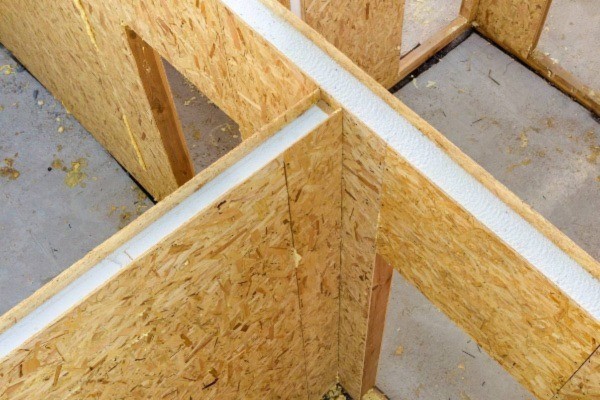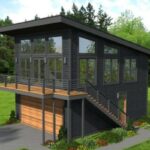Does Avio Homes use SIP walls?
Yes, absolutely! – SIP walls are standard with every Avio Home we build.

What are SIP walls?
SIP (Structural Insulated Panel) wall construction is a modern building technique that offers numerous benefits over traditional methods of building. SIP panels are composed of two outer layers of oriented strand board (OSB) or plywood, with a layer of insulation in between. This type of wall construction has been gaining popularity in recent years, and for good reason. In this blog post, we will explore the benefits of using SIP wall construction.
What are the benefits?
- Energy Efficiency
One of the biggest advantages of SIP wall construction is its energy efficiency. The insulation in SIP panels is typically made of foam, which has a high R-value (a measure of the insulation’s ability to resist heat flow). This high level of insulation means that buildings constructed with SIP walls can use less energy to maintain a comfortable temperature, which can result in significant cost savings on heating and cooling bills over time.
- Structural Strength
SIP walls are incredibly strong and durable, providing a level of structural integrity that is difficult to achieve with traditional building methods. Because of their composition, SIP walls can withstand a great deal of pressure and stress, making them ideal for use in areas prone to earthquakes, high winds, and other natural disasters. Additionally, SIP walls are less likely to warp, shrink, or settle over time, which means that buildings constructed with SIP wall systems will remain structurally sound for years to come.
- Faster Construction Times
SIP wall construction can be completed much more quickly than traditional methods, resulting in faster project completion times and reduced labor costs. The panels are pre-fabricated off-site and then delivered to the building site, where they are assembled and secured in place. Because the panels are pre-made, there is less cutting and measuring required on site, which saves time and reduces the risk of errors.
- Improved Indoor Air Quality
SIP wall construction can also improve indoor air quality. Because SIP panels are tightly sealed, they prevent air leaks and drafts from entering the building. This means that the air inside the building is less likely to be contaminated by pollutants or allergens, which can help to create a healthier living or working environment for occupants.
- Cost-Effective
While SIP wall construction may initially seem more expensive than traditional methods, it can actually be quite cost-effective in the long run. Because of their energy efficiency, buildings constructed with SIP walls require less energy to maintain a comfortable temperature, resulting in lower energy bills. Additionally, the strength and durability of SIP walls means that buildings constructed with SIP wall systems are less likely to require expensive repairs or renovations down the line.
- Design Flexibility
SIP wall construction also offers a great deal of design flexibility. SIP panels can be cut and shaped to fit virtually any design, allowing architects and builders to create buildings with unique and interesting shapes and angles. Additionally, because SIP panels are pre-fabricated, they can be customized with a variety of finishes and coatings, allowing builders to achieve the desired aesthetic for their building.
- Environmentally Friendly
SIP wall construction is also environmentally friendly. The panels are typically made from renewable materials such as wood, and the insulation is often made from recycled materials. Additionally, because buildings constructed with SIP walls are more energy efficient, they require less energy to heat and cool, which can help to reduce the building’s carbon footprint over time.
In conclusion, SIP wall construction offers numerous benefits over traditional building methods. From improved energy efficiency and structural strength to faster construction times and improved indoor air quality, SIP walls are an excellent choice for any building project. Additionally, the cost-effectiveness, design flexibility, and environmentally friendly nature of SIP wall construction make it a smart choice for builders and architects who want to create high-quality, sustainable buildings.


